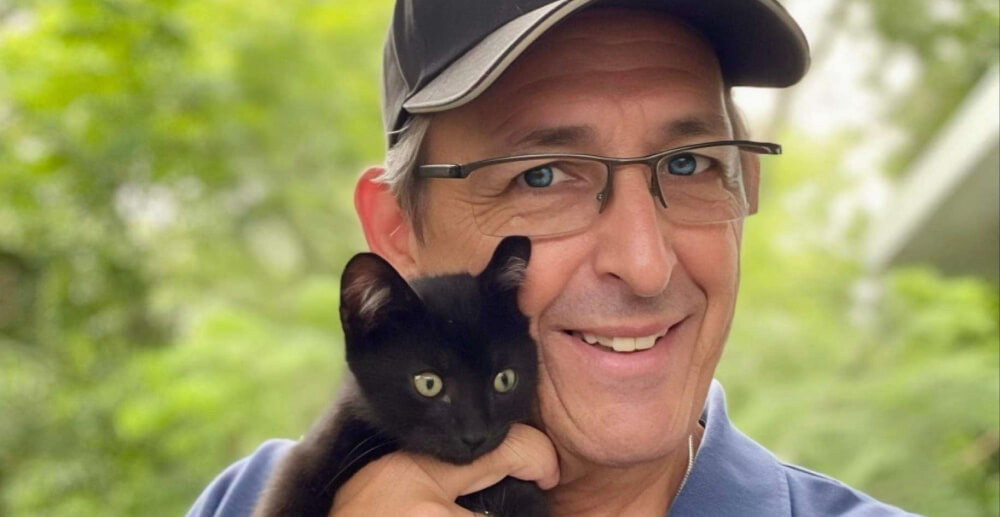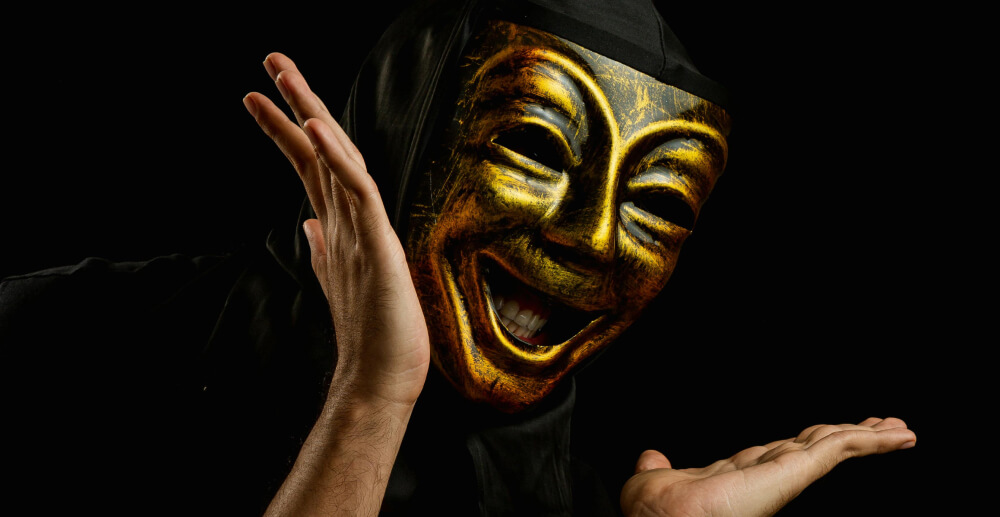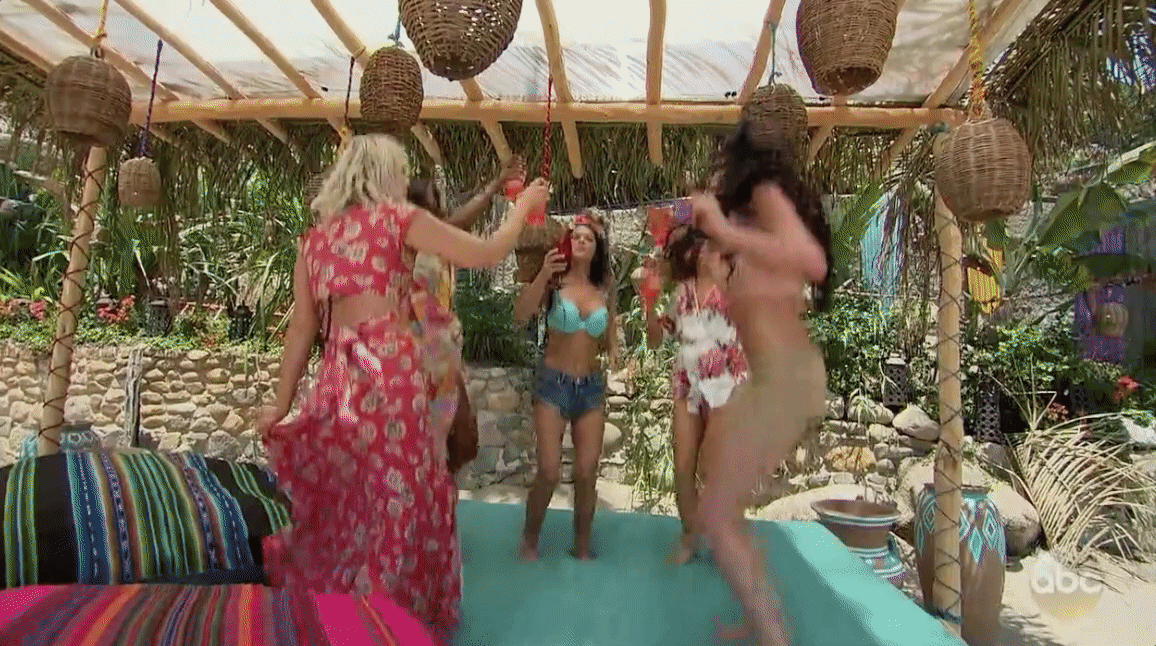The Problem with the Show “Bachelor in Paradise”
There’s a dark cloud hanging over the beloved beach resort where Bachelor in Paradise is filmed. And that cloud looks a lot like the cool condensation you’d find on a cocktail glass, filled to the brim. Or five. Chugged in an hour. On an empty stomach.
For those living crab-like under the rocks, some serious drama went down during filming this season. The first day on set, two villains from former seasons (Corinne Olympios and DeMario Jackson) drank heavily, as do all cast members. Then, they headed to the pool for some canoodling. Two producers filed complaints with Warner Brothers about the incident, voicing concern that Corinne wasn’t able to consent. Corinne released a statement saying, “Although I have little memory of that night, something bad obviously took place… As a woman, this is my worst nightmare and it has now become my reality.”
For any lady (or gentleman) who has woken up with a pit in her stomach and a blank spot where the night before should be, this hits home. Since Corinne’s statement, both parties lawyered up, Warner Brothers closed down the set and did an internal investigation, and found no wrongdoing. And now it seems Bachelor in Paradise is ready to get back to being a paradise retreat. But Paradise isn’t someone filming you while you’re intoxicated to the point of not remembering your own actions, and then playing it for a national audience. That sounds a lot like hell to me.
“But Paradise isn’t someone filming you while you’re intoxicated to the point of not remembering your own actions, and then playing it for a national audience. That sounds a lot like hell to me.”
The Bachelor franchise relies on drinking as both social activity and plot churner. Cocktail parties act as evening events, toasts come continuously, and (more notably) contestants are encouraged to drink heavily to bring on the drama. Bachelor contestant Leslie Hughes told The Daily Beast, “It’s how they get you to be more talkative, more sensitive. When I came in for the producers’ weekend, I remember it was like 12 noon, and they were like, ‘You want some champagne, wine?’ And I was like, ‘It’s 12 p.m., noon!’ And they’re like, ‘Welcome to the Bachelor family.’” But encouraging the consumption of mood-altering substances for entertainment value is a slippery slope. It reeks of exploitation. And with this latest incident, it’s easy to imagine how far down this exploitation slope we could slide.
Despite its staff of handlers working to keep all the buzzy, funny effects of alcohol churning forward with none of the harm, binge drinking has consequences. Part of the reason we tune in is to watch these consequences unfold in real time. Ambulances, tears, hurt feelings, hook-ups. This is the wreckage of too much drinking that made up many of our college years, reflected back at us. Reality TV makes us cringe and draws us like moths to a lit iPad screen because we see all that ugly stuff about our own lives, magnified. This is why we love to watch, or hate to watch. On and off TV, people drink too much. Binge drinking is hard on your body, and hard on your brain, and you can’t produce that away.
“This is the wreckage of too much drinking that made up many of our college years, reflected back at us.”
One of the most socially complicated and often scary effects of binge drinking is blacking out. Contestants on the show have been blacking out from alcohol without anyone talking about it, most notably last season when Chad was kicked off after blacking out and behaving worse than usual (although his behavior was addressed, blacking out was not).
Blacking out lives in a gray area of inebriation. It’s weird brain stuff, and easy to misunderstand. It’s often associated with alcoholism, and studied more frequently in male alcoholics, but you don’t have to be an alcoholic to blackout. Like so many little-discussed and understood behaviors, blacking out is surrounded by stigma and shame. Anyone who has woken up with a feeling of dread, wondering what they did last night in a blackout, knows this. A quick read of the comments regarding Corinne and Demario’s behavior on Bachelor in Paradise and afterward (one comment directed toward Corinne: “Play with matches and you’re bound to get burned, it’s not the matches fault, it’s yours.”), behavior that they may not have been aware of at all, reveals this stigma as well and how little blackouts are understood and discussed in our culture.
Alcohol, especially when consumed quickly, can block your brain’s ability to form short term memory. It’s quite an interesting phenomenon when it isn’t happening to you. People in a blackout, according to Addiction Professional, “Are lost in the truest sense of the word–lost to themselves, lost in space, lost in time. They cannot think, learn, plan or form intent. They are unaware of what they are doing, let alone why. They have lost what Nobel Prize Winner Gerald M. Edelman calls ‘higher-order consciousness’ and with it much that makes them human beings.”
Blackouts are tricky for a variety of reasons. Unlike passing out after drinking too much, when you fall asleep, during a blackout you can drive a car, carry on a conversation, and function much like a normal person, with no awareness of what you are doing or saying. This creates a unique situation for producers tasked with monitoring contestants. It’s impossible to know, in an environment laden with heavy drinking, who might react to alcohol by blacking out.
“Affirmative consent is especially relative in environments where people drink heavily, like college campuses and (now) reality television shows, because a blacked-out drinker may be walking and talking but totally unaware of their situation.”
As anyone who loves someone with a drinking problem knows, blackouts also create holes in accountability. Everyone surrounding the drinker can experience their wrath, while they get filled in the next day on their rage or bizarre behavior with no emotional attachment from the night before. As we saw with Corinne and Demario, blackouts also lead to issues of consent. Affirmative consent is especially relative in environments where people drink heavily, like college campuses and (now) reality television shows, because a blacked-out drinker may be walking and talking but totally unaware of their situation.
The word is that Bachelor in Paradise, once suspected by many to be cancelled, will now have a 2 drink per hour limit. This seems like a safer limit for men than for women, who are more susceptible to alcohol’s effects. But it’s a start. As basic as it sounds, it might serve producers to become TIPS certified, as are bartenders and others who work in environments that serve alcohol. If your cultural norm is being wasted (and that definitely seems to be the Bachelor’s cultural norm) than training on what moderate alcohol consumption looks like could help.
It seems clear that avoiding blackouts on the show is a good idea. Using the show to raise awareness to the masses about what in the world happened when Chad drank too much and started yelling at everyone then soiled himself, or why Corinne acted fine at first and then became freaked out once she was relayed events from the night before, would also be ideal. ABC has said they’re going to air much of the footage leading up to the sexual encounter between Corinne and Demario in the pool. It’s going to be really easy to vilify one of them, or both.
But let’s have some compassion for folks on the screen as people, affected by a substance and drinking too much of it too quickly. This is the type of stuff that happens every day on college campuses across the country. Regardless of Corinne and Demario’s motivations, binge drinking is a nationwide issue. Normal people struggle with the uncomfortable consequences of drinking too much every day, and a reality show where people drink too much can’t escape those consequences. In hindsight, it’s amazing nothing worse has happened before this point. Hopefully, Bachelor in Paradise can allow those consequences to play out with grace and humanity.





